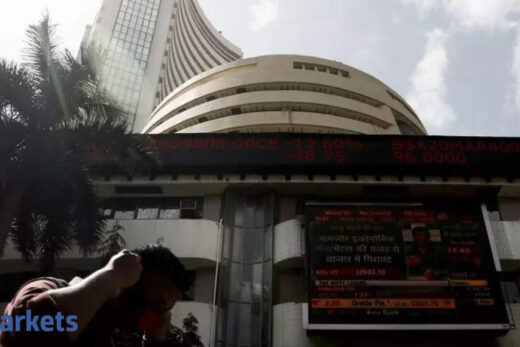On HDFC Bank Q3 result
The HDFC Bank results are decent but there are a few areas about which potential investors need to be convinced. First of all, retail loan growth is just 5%. The entire growth is a reflection of wholesale loans which tend to have a lower margin. Right now, given the mix, the margins are sustaining. There is a question mark on whether those margins can sustain going forward.
Secondly, there is some sale of non-performing assets to ARCs for which the bank has not given details and that has been used to show a lower NPA figure. The exact amount should ideally have been clarified and the NBFC subsidiary, HDB Financial Services, has taken the brunt of the hit. So the bank has not taken the hit but down the line, the hit has come.The stock trades at around 3.3, 3.4 times price to book, which on a one-and-a-half-year, two-year forward earning, is not really cheap.
Combining all of that, I would think that the near-term upside, irrespective of the extremely bullish brokerage commentary, should be limited. The key will be to watch how the entire growth story revives on the retail side without an uptick in NPAs. Obviously, they have cut down growth because they thought there could be an uptick in NPAs on the retail side. Whether growth returns or not needs to be seen going forward.
ON SAIL OFS
Given that the OFS was at a substantial discount and steel is a hot sector right now, the response was expected to be good. My guess is that the stock will go into a phase of consolidation rather than a significant upside because one does not know if steel prices can keep on rising the way they have been rising. That is the challenging part, given the significant uncertainties of global growth even today. As we enter a phase of consolidation in SAIL as well as most of the other steel stocks, subsequently we could see another up move if the steel prices sustain at higher levels.
On Reliance’s non-telecom, non-retail business
On the GRM side, there has not really been any significant upside as per the reported figures on the Asian-Singapore GRM numbers. What Reliance comes out with always tends to be very different from what the Asian numbers are. That is something which is very tough to predict normally. Reports on Reliance by large brokerages show they expect about 50% of the entire earnings growth for next year to come out of higher profitability from Jio and some improvement in GRMs.
Jio performance seems to have peaked out and they are not gaining market share any longer. That is the challenge which people should be aware of. On the refining side, given the huge over supply of refining capacity globally and the under utilisation that is currently on, it is tough to predict a significant upside. These are the two factors which need to be considered. My guess is RIL will at best be a market performer.
On Tata Motors
Tata Motors has run up sharply after the entire auto sector moved up because of the apprehensions around Tata Motors. But given the uptick in the global JLR business following the uptick in the Chinese economy, there is renewed bullishness. The recent stock price movement also got a boost thanks to the commentary around the scrappage policy.
Now the key is around expectations versus what they can deliver. I would say that the stock has run up a lot and it will be tough for it to sustain this kind of up move in the near term. There should be a phase of consolidation or even a correction from current levels. The scope of positive surprises from a company where expectations are very low typically tend to be high and it is a very under-owned stock. You hardly see it in large portfolios.
So if Tata Motors can deliver on the results and show some positive surprise, then I would not be surprised if subsequent to the results, we could see more uptick. But right now, all positive factors seem to have been factored into the price.
On cos where high debt can convert into high opportunity
This always happens in an economic upcycle, at least in the initial 1-3 years of an upcycle, and it will happen this time also. Given the fear psychosis of most of the fund managers and the fact that the quality stocks have actually delivered, whoever took a bet against quality and moved into some value stocks, have underperformed not only for the last two, three years but for the last 10 years.
That is why growth investing into a set of high ROE companies which do not have leverage is the fancied investment thesis today. But eventually, the valuation barrier does come in. Look at valuations of DMart for example. Assuming a 100% earnings growth next year, the stock trades at 100 times next year. I do not see any margin of safety in such a stock at this price. But on the flip side, there will be companies which will turn around and deliver.
One key example from a largecap side of these sort of companies is Bharti. It has high debt, the top line growth was under pressure. Now we see pricing improvement. Debt costs have come down and the overall debt could come down. There will be a translation of value from debt free equity.
A similar thing is being seen in commodity stocks lately and where given that they will have significant debt repayments, the entire debt value is getting converted into equity returns. So, even if the total enterprise value remains the same, EV debt value getting converted into equity creates a significant upside. That could play out as long as the economic growth revival happens at the pace at which it is expected.
On stocks where this concept would apply
The companies which come to mind from the largecap side include L&T which will be a key beneficiary of whatever we have discussed. The order booking has been very strong and debt cost reduction and deleveraging will happen and as execution picks up, we will see more operating leverage coming in.
In case of smaller companies, we could see this happening in real estate stocks. Some of the real estate stocks have moved up quite significantly over the last two weeks. Whether they will go through a phase of consolidation before moving up again is a bet people will have to take. But I think the prime companies are larger companies like DLF. I am positive on that and it has a significant percentage in some of our portfolios today.
The stock has done well and my guess is it should still be able to do well and as we move down, we have to look at midcap construction companies which not only survived through the entire Covid period but also a very high interest rate environment. Their balance sheet is reasonable and as execution picks up, the earnings will surprise on the upside. These are the two broad categories which actually come to mind.
On PVR as movie launch starts on big screen
I strongly believe that both PVR and INOX are very well placed for the post pandemic period. We are seeing single screen cinema shutdown and single operated multiplexes are also shutting down. We could see a phase where for the next two-three years, these companies might be able to acquire assets at a much lower price and replacement value and then once movie viewing comes back strongly, they will be winners. One year down the line, there will be complete normalcy and these companies should be able to do very well.



